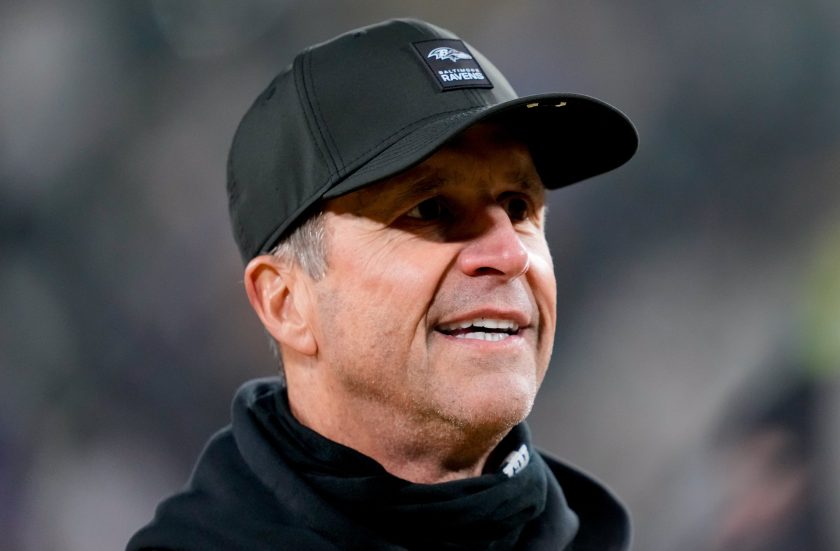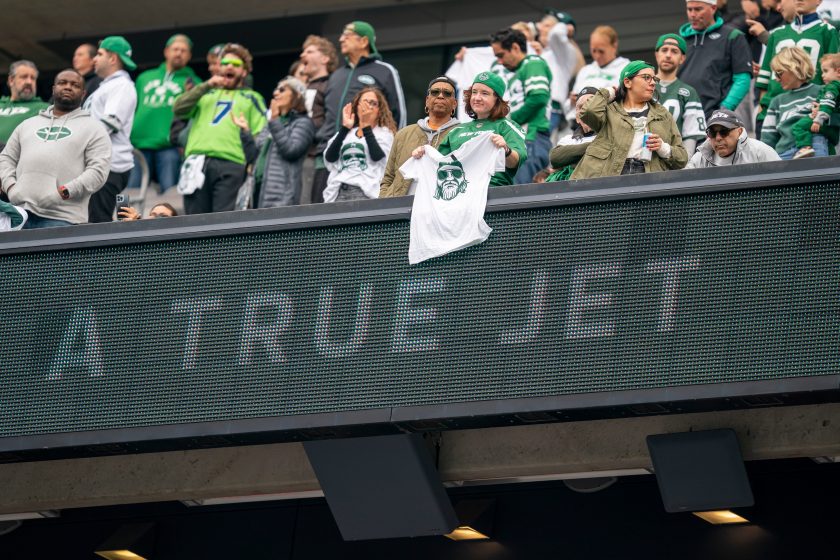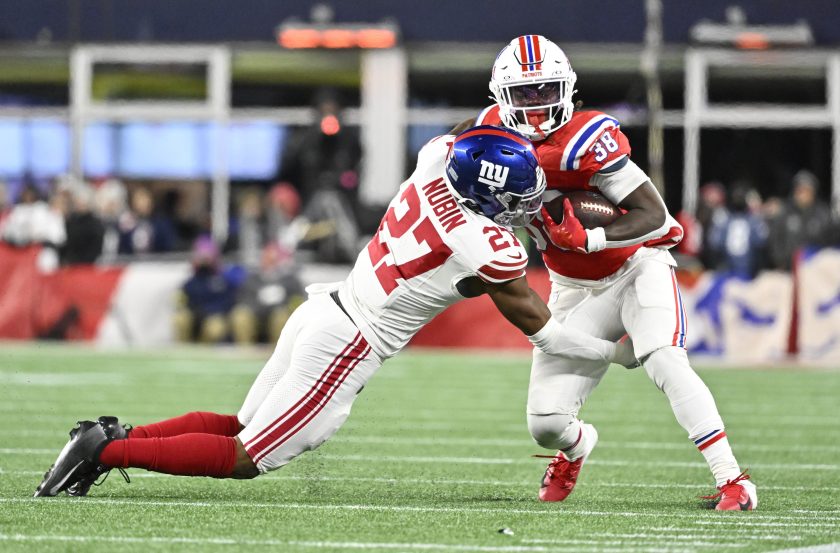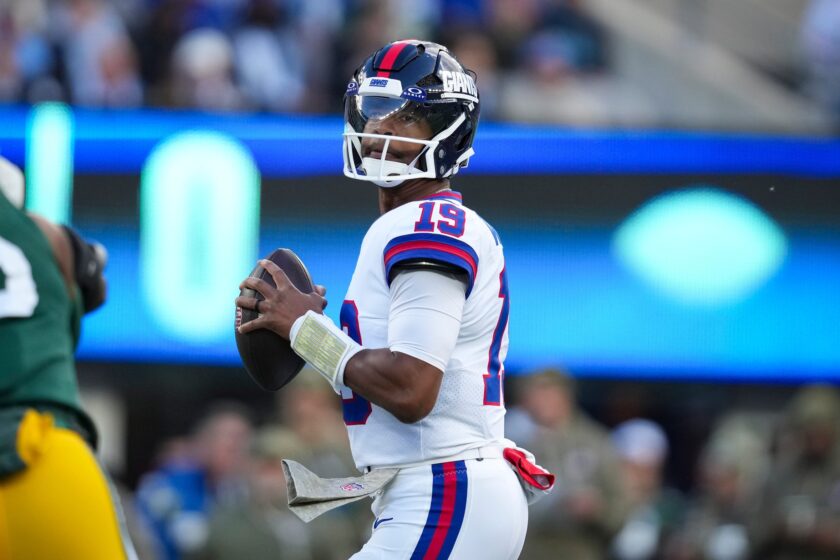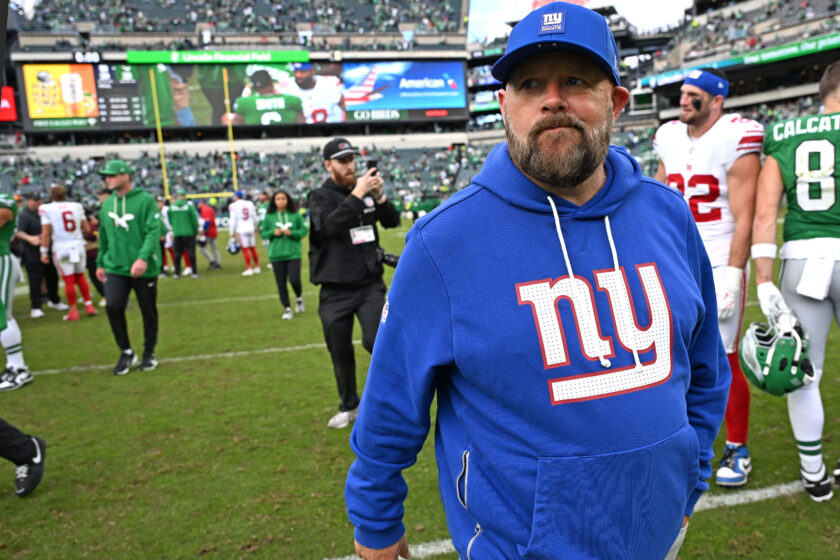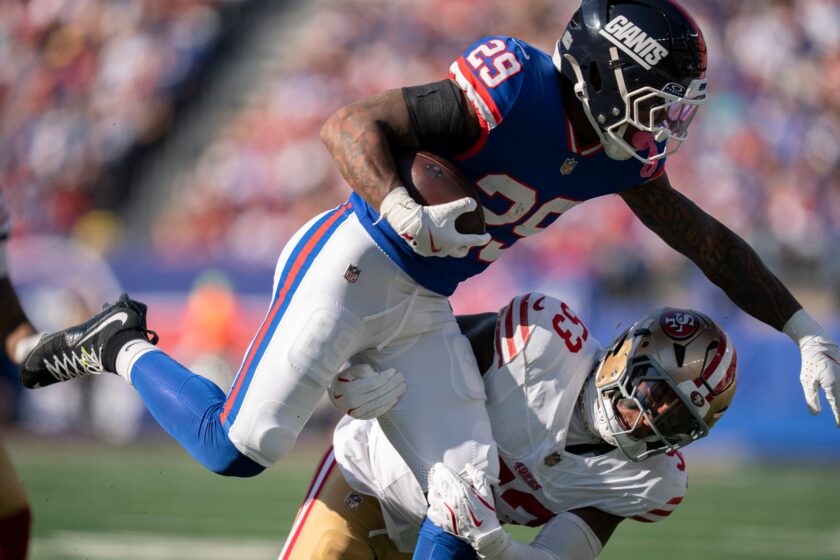The New York Giants throwback choice of Joe Judge guarantees one thing
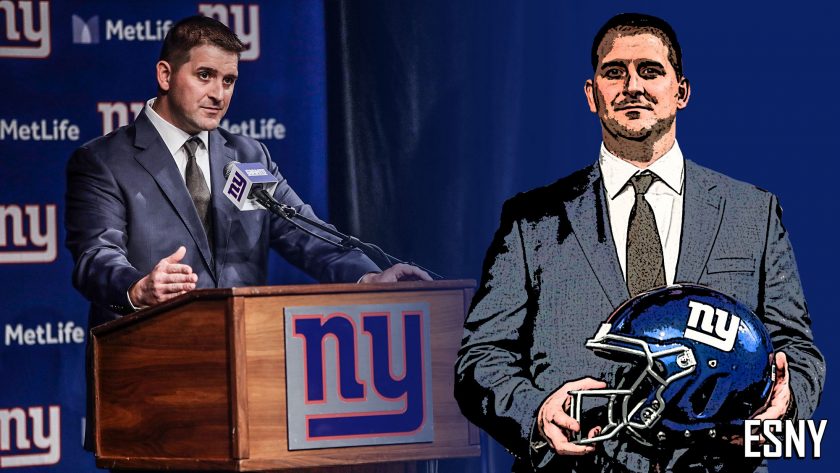
Once again, Dave Gettleman and the New York Giants are kicking it old school, this time with Joe Judge, their new head coach.
[sc name=”robby-sabo-banner” ]All rise. Or, at the very least, perk up and pay attention. Joe Judge’s first official duties as New York Giants head coach came off as extremely credible, if not downright remarkable. (Remember, not every introductory presser flows so freely without controversy or humor.)
Speaking confidently with genuine posture, the Jints’ 38-year-old sideline boss impressed the football-breathing world on Thursday.
“I think one thing people ask me a lot is, ‘You worked with coach (Nick) Saban and coach (Bill) Belichick, what makes you different?’ Look, I’m myself. I’m going to be myself every time,” Judge proclaimed at his introductory presser in East Rutherford, via Jason Leach of ESNY. “If I’m anything else, they’re always going to see straight through it. If you lie to the team, you’re going to lose the team. So I’m always going to be myself, and that is a little bit different than other people. And that is fine.
“I’m not trying to emulate anyone that I’ve worked for. I’m trying to take what I’ve learned from them and will match it with my belief structure and do it in my own personality.”
Mentality No. 1 seems to be on track: don’t emulate another. Though Judge’s resume includes three Super Bowls and shoulder-rubbing with the likes of Bill Belichick and Nick Saban, every football man is built from his own set of circumstances and experiences.
With his confident demeanor and take-charge attitude, a throwback feel filled the Giants’ complex. If old-school wasn’t the obvious objective, Dave Gettleman, John Mara and company, at the very least, stumbled upon such a clear reality.
Judge’s history and football upbringing guarantee the Giants an old-school coaching staff feel. Perhaps, most importantly, the hire guarantees one thing: this head coach will have his hands in anything and everything.
Think structure. Several decades ago, the following distinction didn’t exist. Instead of essentially employing two head coaches, Gettleman went with the team czar, the clear boss at the top of the sideline hierarchy, the man who’ll oversee every nook and cranny of the ground-level operation.
It’s an incredibly foreign situation to what’s been experienced over the last four seasons.
As much as the organization would love to deny it, the Pat Shurmur regime showcased two head coaches (in theory). Shurmur, the offensive play-caller, ran the offense, while James Bettcher, the defensive play-caller, did his thing on the other side of the ball. It’s not a situation unlike many others in the league that plays for pay. Previously, Ben McAdoo, another offensive play-caller, deployed a similar coaching structure.
In Florham Park, Adam Gase has very little to do with Gregg Williams’s defense. When defensive benchings happen on Sunday, it’s the elder statesman who takes full control. This two-headed monster first began in 1985 with Mike Ditka and Buddy Ryan, and has eventually morphed into a real strategy.
Obviously, only one man can carry the red challenge flag in his pocket and make the final call on time management situations, but these NFL teams aren’t fooling anybody: the two-headed coaching monster is a legitimate coaching staff strategy.
What the Giants just obtained flies in the face of that exact strategy.
Judge, a special teams man, will neither call the offensive nor defensive plays. This naturally means his attention can be available for every aspect popping up during the week and on Sunday.
Think John Harbaugh. Think Pete Carroll. Think Belichick. Arguably, the three best head coaches in the game all stay away from strict play-calling duties. Of course, this doesn’t mean they stay away completely. (Belichick still rounds his defense up after the first drive with his freshly-scribbled notepad ready to spark adjustments.) It simply means all three free up their incredibly precious time and use it to find advantages in areas other play-calling head coaches simply cannot.
Structure is only a slice of the throwback notion pie. Judge appropriately stated his organization’s objective moving forward. He understands the passion of the Giants fan and relishes the energy. Using the fandom in a way to cloak its fire in the team’s identity is an old-school feel that’ll have any New York sports fan ready to run through a wall. (Any New York Knicks fan who experienced the tough and workmanlike 1990s squads would agree.)
[sc name=”danny-dimes-t-shirt” ]While identity is important from a fundamental standpoint, not everything will resemble a throwback feel. The greatest touch Belichick left on the league is his way with personnel. Unlike old times, featuring teams and their specific identities—the defensive-first 1980s Chicago Bears, the three-step passing 1980s San Francisco 49ers, the Greatest Show on Turf St. Louis Rams—Belichick’s squads never showed up with one style in mind.
They played in a chameleon-like fashion with a gameplan-first attitude built around its opponent.
“What I learned from coach Belichick was real simple,” he said. “Be flexible within your personnel. Don’t try to shove round pegs into square holes. Figure out what you have. Let them play to their strengths. Don’t sit in a meeting and tell me what you don’t have in a player. Don’t tell me they can’t do a certain thing. Tell me what they can do and then we’ll figure out as coaches, because that is our job, how we can use that. That is our responsibility. Everybody has something they can do. How many castoffs you see around the league where they say, ‘Wow, how did they get that out of him?’ Maybe they just weren’t closing their eyes on what they could do.”
If they had to throw it 50 times from an empty formation, they would. If they had to move to 22 personnel and run 10-plus power schemes against a weaker front-seven, they would. If they had to hold off on the blitzing against a veteran quarterback who’d pick them apart, they would.
Judge, while maintaining a throwback feel via fundamental play and attitude, will bring that new era of game planning football to New York.
A no-nonsense guy who’ll preach a team-first attitude in today’s Charmin soft player’s league? You bet.
“You hold those you expect the most from at the highest standard,” a quote Joe Judge’s first coach, his dad, drilled into his football soul.
The newest New York Giants head coach thanks Bill Belichick, Nick Saban and more upon his appointment. #GiantsPride pic.twitter.com/61zyugxM6f
— ESNY (@EliteSportsNY) January 9, 2020
Don’t, for one second, buy the idea that can’t work in today’s social media-driven atmosphere. The players oozing potential greatness want that direction. They crave such guidance.
Remember, this is a hard-salary cap league. Talent divided among 32 franchises is extraordinarily similar. Front office smarts and coaching staff know-how oftentimes make the greatest difference, especially by way of development.
For the New York Giants, “throwback” is the word of the last full calendar year. First, a me-first guy in Odell Beckham Jr. was sent packing. Then, a veteran in Eli Manning was unapologetically kept employed in the face of young Daniel Jones. Now, a special teams guy who won’t call plays and will have his hands in every aspect of his football team will run the show.
This isn’t a move saddled with buzzwords such as “quarterback whisperer” and “play-calling savant.” This move is about an old-school structure that still works in today’s game, one most NFL franchises fail to recognize and put into action.
January 2020, thanks to the hiring of Joe Judge, the New York Giants did capitalize on this far-too-seldom-used idea while kicking it old-school.
Robby Sabo is a co-founder, CEO and credentialed New York Jets content creator for Jets X-Factor - Jet X, which includes Sabo's Sessions (in-depth film breakdowns) and Sabo with the Jets. Host: Underdog Jets Podcast with Wayne Chrebet and Sabo Radio. Member: Pro Football Writers of America. Coach: Port Jervis (NY) High School. Washed up strong safety and 400M runner. SEO: XL Media. Founder: Elite Sports NY - ESNY (Sold in 2020). SEO: XL Media.
Email: robby.sabo[at]jetsxfactor.com

